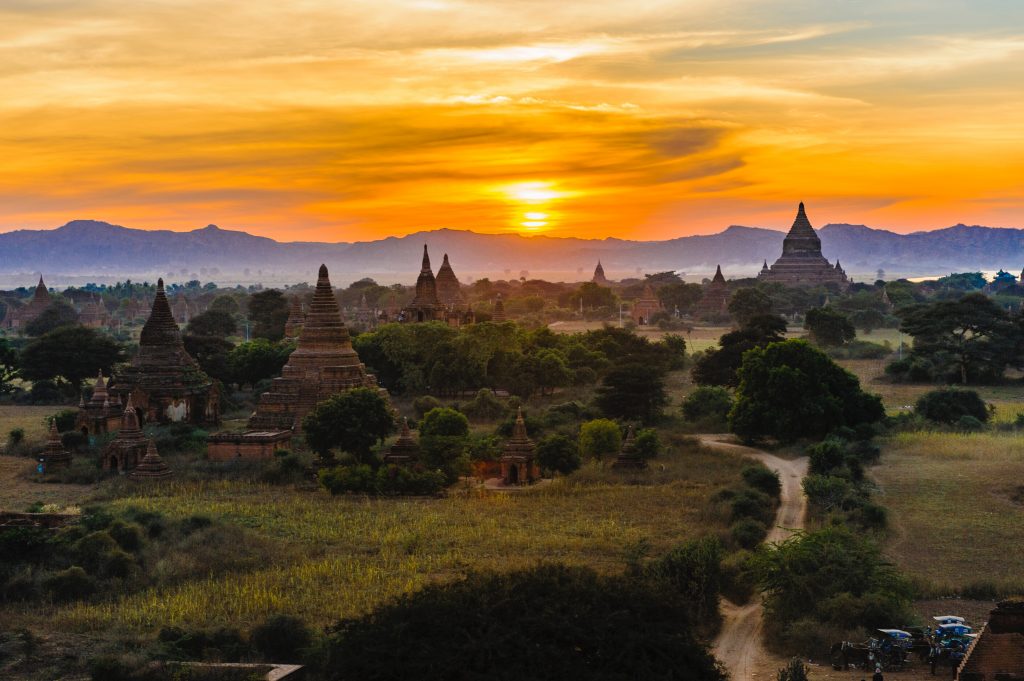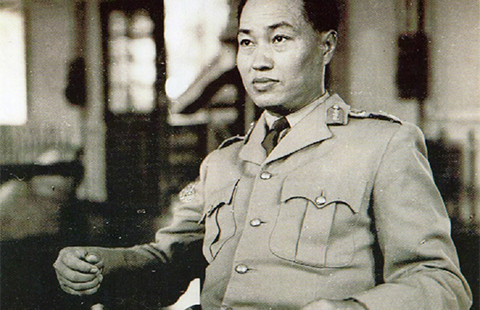Myanmar also known as Burma – Southeast Asia. It shares its borders with India, China, Bangladesh, Thailand and Laos.
Myanmar has a vast history of struggles of opposing military regimes and civil war.
They also had to face several challenges. Isolation from the outside world and economic stagnation during the decade of its independence.

In 1886, the British made Burma (Myanmar) a province of India and incited much further reforms to build the region. In the northern territory, opposition to British rule continued until 1890. British eventually burned whole settlements in order to stop rebel activity. A strategy now preferred by the military junta of today.
Myanmar – Movement for Freedom Begins
The first signs of increased opposition against British rule were protests by university students in 1920. There were strikes and anti-tax demonstrations, with Buddhist monks holding a major position and even heading an armed uprising.
Rangoon University was a major source of extremism, and Aung San, a young law student, achieved rising popularity in the revolution for attaining national autonomy.
The military junta has controlled Myanmar for several years since it became independent in 1948 from British colonial rule.
Aung San had cofounded the Communist Party of Burma thinking of getting Chinese support. But, eventually got Japan’s support for military training. However, he had a fallout with the Japanese when Japan invaded Burma in 1942 after getting rid of the British.
Aung Sang then co-founded the Anti-Fascist Freedom League (AFPFL) and by May 1945 expelled the Japanese from Burma. Aung San also concluded an agreement with the country’s ethnic nationalities for a unified Burma.
Myanmar – The Era of Uncertainty

The 1950s was a revolutionary period for Burma. Amid the civil war unfolding in places around the world, with the economy starting to recover. After a period of ten years, the Burmese Constitution granted a degree of autonomy for the ethnic minority states. However this did not reach statistical significance resulting in massive instability.
Inside the ruling AFPFL under U Nu, there were internal divergences.
In 1958 the military took over for the first time under General Ne Win, one of the Thakins.
U Nu became Prime Minister in 1960. Anyway, days of independence didn’t last long. Ne Win staged a coup in 1962. The country’s collapse under military rule commenced.
The constitution became disbanded, opposition political parties were declered outlawed. The All Burma Student Union was suspended, the media were suppressed, and the nation was cut off from the international community. Human rights violations escalated, and all opposition was suppressed, nationalizing all main sectors.
The insurgency intensified and police and the military dealt with it. In 1974, Ne Win established a new constitution based on an isolationist policy.
A socialist economic policy that nationalized the main businesses of Burma.
Myanmar – The Period of Stagnation
The economic condition quickly worsened, and a black-market economy took over. By 1988, pervasive corruption, rapid economic policy changes related to the currency of Myanmar, and food shortages contributed to major demonstrations led by students.
The army placed restrictions on demonstrators in August 1988, killing at least three thousand civilians and dispersing thousands more. Ne Win withdrew as leader of his party in the wake of the 1988 crackdown.
He remained involved behind the scenes as, yet another military junta seized power.
The new military government changed the name of the nation from the Union of Burma to the Union of Myanmar in 1989. Yangon was renamed as the capital from Rangoon. The military regime transferred its administrative capital to Nay Pyi Taw in 2005, a town that it had established in central Myanmar.
Myanmar – Democracy Prevails

Aung San’s daughter Aung San Suu Kyi, who came to the country to support her ailing mother, started in Rangoon an emerging campaign for democracy. With her non-violent attitude and political honesty, she stole the hearts of the people, was put under house arrest.
In 1989, she was arrested and served 15 years in jail and under house arrest till her release in 2010.
In 1991, still under house arrest, Aung San Suu Kyi received the Nobel Peace Prize. Military placed a referendum in April.
The referendum was boycotted by the NLD, as were the 2010 elections that took place under the Constitution. In 2015, Aung San Suu Kyi became the de facto leader of Myanmar (the constitution forbids her from taking the presidential title.) She helps in boosting significant domestic assistance. In the first publicly contested Myanmar elections in 25 years, in 2015, she led her National Democratic League (NLD) to victory.
Although her reputation declined internationally due to her reaction to the controversy that befell the largely Muslim Rohingya minority in Myanmar, she remains extremely famous amongst the Buddhist majority of the region.
Democracy Disbanded-Yet Again
On February 1st 2021, a few days before the commencement of the scheduled meet of the country’s newly elected Parliament, Myanmar’s military overthrew the democratic government of the nation in a coup d’état under commander-in-chief Min Aung Hlaing.
As per sources in Myanmar, Aung San Suu Kyi, who directed the National League for Democracy (NLD) to a landslide victory in the 2020 elections, and the de facto leader of the outgoing administration, has been held along with President Win Myint.
The military declined the results of the election. They saw it as a verdict on Aung San Suu Kyi’s influence and the new Parliament was going to accept the outcome of the elections and endorse the next government.
Current situation is very complex but there is still hope that the transition to democracy will continue.
Omkar Amol Moharir
For Insider Release
Do you want to tell us something?
Contact:
What’s your opinion on this matter?
Leave a comment below!
DISCLAIMER
INSIDER RELEASE is an informative blog. Various topics are discussed.
Ideas and concepts, although are based on research from official sources, are the result of free evaluations by the writers.
The BLOG, in full compliance with the principles of information and freedom, is not classified as a press site.









More Stories
Chinese Underground Cities: History, Uses, and Future Prospects
The Evolving Role of Private Military Companies in African Conflicts
Geopolitical Dynamics February 2024